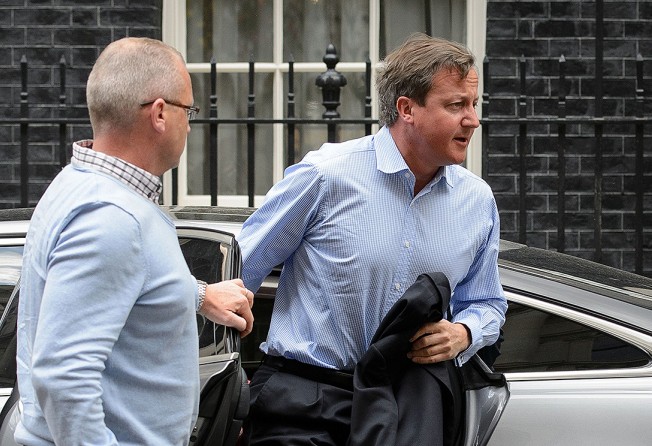James Foley beheading: executioner with a London accent prompts British soul searching
Executioner with a London accent focuses concern on the hundreds of British jihadists who could return to wreak havoc at home

The beheading of an American journalist by an extremist with a London accent has prompted deep reckoning among Britons over the vicious role their countrymen are playing in the destabilisation of the Middle East.
Security officials in London have been sounding the alarm for more than a year over the large number of foreigners in Syria, with the chief of Scotland Yard saying last week that about 500 Britons were among those who had joined the fight.
The government's concerns have focused on the possibility that some of those fighters will return home, newly radicalised, and carry out attacks in Britain.
British Muslim leaders urged people to contact police if they knew the identity of the executioner. The Muslim Council of Britain, the largest Muslim umbrella group in the country, called for united action by Muslims to stop the "poison of extremism" infiltrating their communities.
The Guardian newspaper said a former hostage had identified the man in the video as the leader of three Britons who had guarded foreign nationals in the city of Raqqa - the Islamic State's stronghold in eastern Syria.
"It seems that these three have apparently got nicknames after the Beatles: John, Paul and Ringo and there are reports that they have been pretty brutal towards their hostages," the BBC said.
The Islamic State probably selected a Briton to carry out the execution because he was willing and it knew that his voice would resonate across the West, said Peter Neumann, director of the International Centre for the Study of Radicalisation.
"They probably picked the Brit because there was no American," he said, noting that only about 100 Americans had joined the fight in Syria. "It was important for them to have someone who speaks English fluently."
Prime Minister David Cameron rushed back from his holiday on Wednesday to chair emergency meetings at 10 Downing Street. He called Foley's killing "shocking and depraved".
Cameron later said British investigators were still trying to identify the executioner but that it looked "increasingly likely that it is a British citizen".
Although the killer was masked, many of the Britons who travel to Syria to fight are known to investigators because they do little to hide their identities on social media, posting material that testifies to their violence.
"We're absolutely aware that there are significant numbers of British nationals involved in terrible crimes, probably in the commission of atrocities," British Foreign Secretary Philip Hammond said. "Many of these people may seek at some point to return to the UK, and they would then pose a direct threat to our domestic security."
The sense that British security services may be losing their grip on home-grown extremism has become acute in recent days as Islamic State supporters have openly distributed leaflets in central London.
Anjem Choudary, a radical London preacher who says the leaflets are the work of his students, said there was "a reawakening of Muslims in Britain and Europe" and that he believed the commander of Islamic State, Abu Bakr al-Baghdadi, was the rightful leader of Muslims worldwide.
Foley's killing, he said, was a response to American aggression against Muslims and what he described as the Western media's inaccurate coverage of conflicts in the Middle East.
Ghaffar Hussain, managing director of the Quilliam Foundation, a London-based anti-extremism organisation, said groups such as Islamic State preyed on the "large number of second-generation Muslims here who are disillusioned with Britain and confused about their identity. It's a generation of people who are susceptible to extremist initiatives".
Watch: Expert: Radical groups like ISIS weaken the Muslim world
Additional reporting by Reuters